Join the West Coast Modern Week's Home Tour 2024 for modernist architecture and more
West Coast Modern Week 2024 comes with its annual home tour courtesy of the West Vancouver Art Museum, offering an extensive, immersive showcase of Canada's modernist architecture
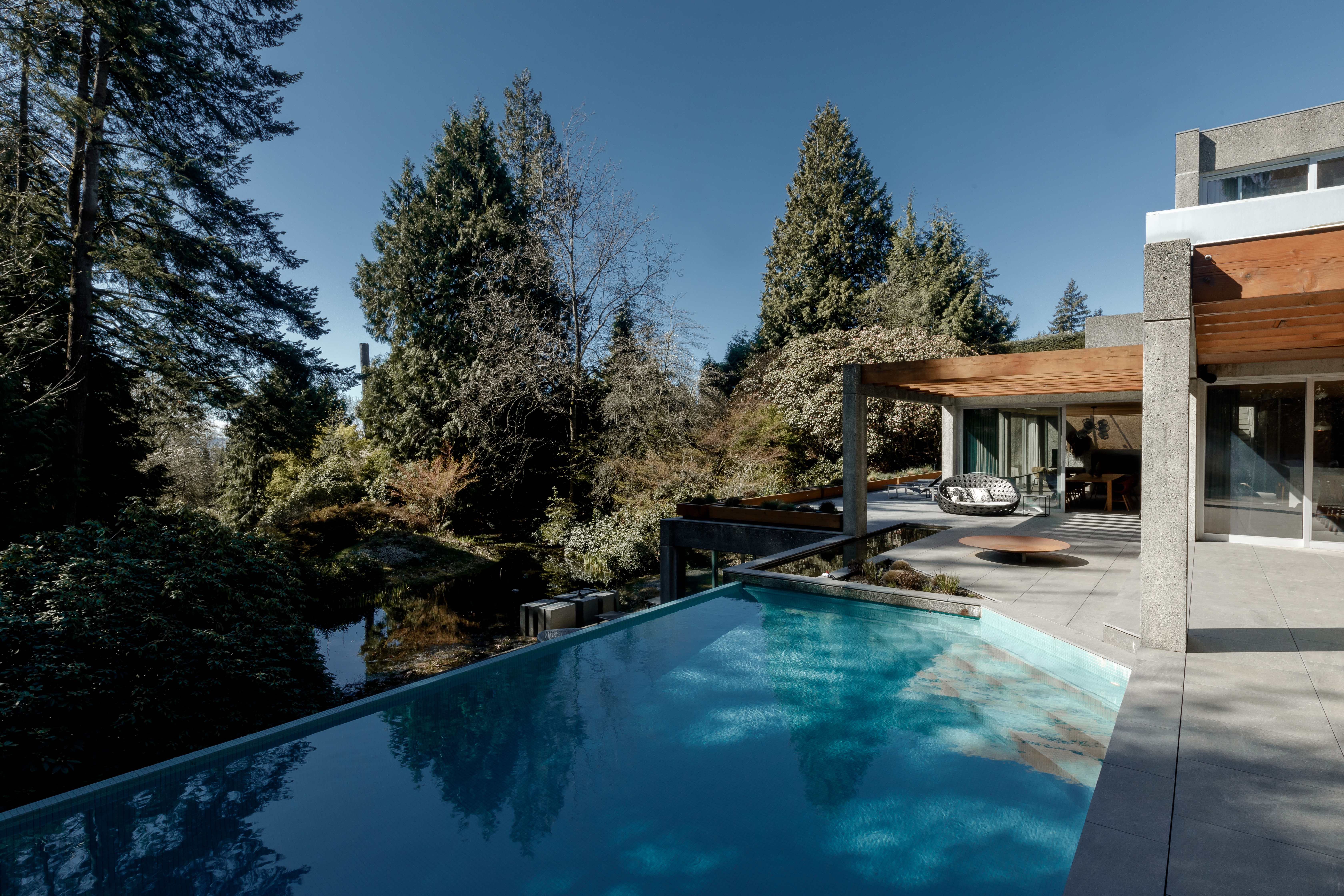
The highlight of this year’s West Coast Modern Week, (9-14 July 2024) is a fitting homage to the late great Arthur Erickson, whose centenary celebrations began on what would have been his hundredth birthday, 14 June.
Not only is the West Vancouver Art Museum (the HQ for WCMW) now celebrating its own 30th anniversary and offering an exhibition of Selwyn Pullan images of Arthur Erickson’s own home and garden – complete with an iteration of his living room – it is also featuring two of his residential designs on its annual West Vancouver Modern Homes Tour on 13 July.
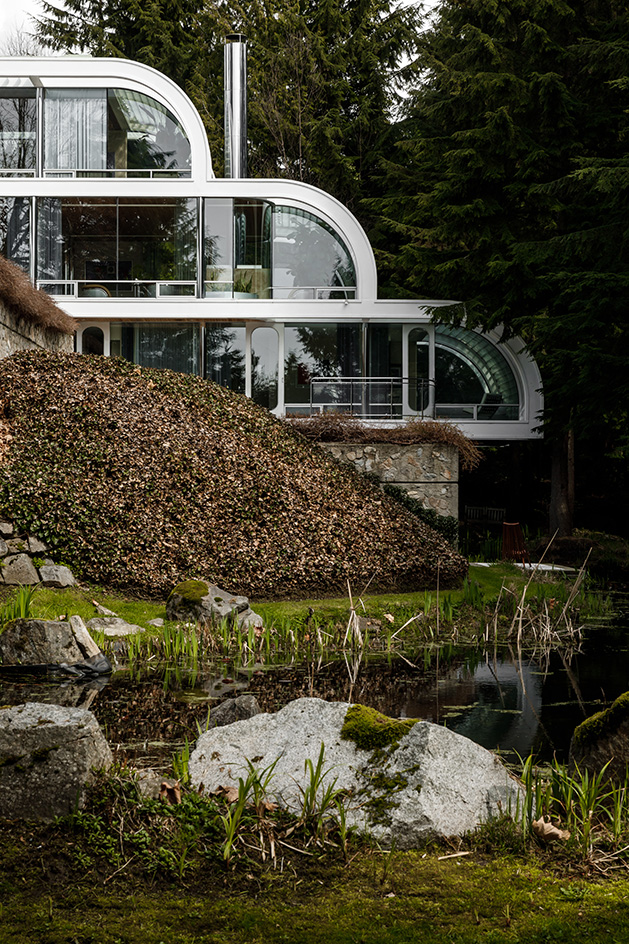
West Coast Modern Week Home Tour 2024
In a province with some of the weakest protection for modernist heritage in North America, the annual homes tour is as much a preservationist plea as a showcase for architectural gems. Indeed Arthur’s famous Smith house, was demolished in West Vancouver in 2007, much to the chagrin of local archi-philes.
Also on tour is the recently renovated home of Erickson’s long-time professional partner Geoffrey Massey. The well-preserved beach house is one of many examples of West Coast modernism in bucolic West Vancouver’s very vulnerable architectural treasure trove.
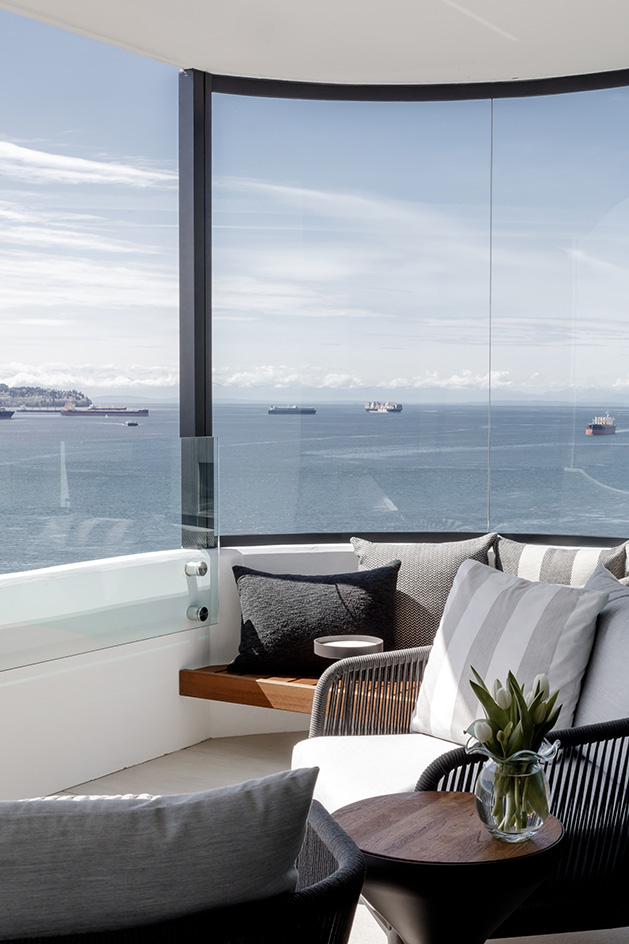
But this year the stars of the homes tour, sponsored by British Pacific Properties and Livingspace, are Erickson’s Eppich Houses 1 and 2. Of the two homes, designed for twin brother steel manufacturers Helmut and Hugo Eppich respectively, the second one designed in 1979 is surely the diva.
A walk through the steel entrance canopy reveals a living-dining ‘great room’ that opens onto the forested site, pond and beyond to views of Burrard Inlet. A curved wall of glass blocks on the eastern edge extends to the upper master bedroom, providing light and reflections of greenery, as well as privacy. Everywhere you look, the views of surrounding trees and water conflate interior and exterior. At one point, a geranium planter in the living area – framed by a steel ovaloid that could be a mirror or a portal to another dimension – appears to be outdoors.
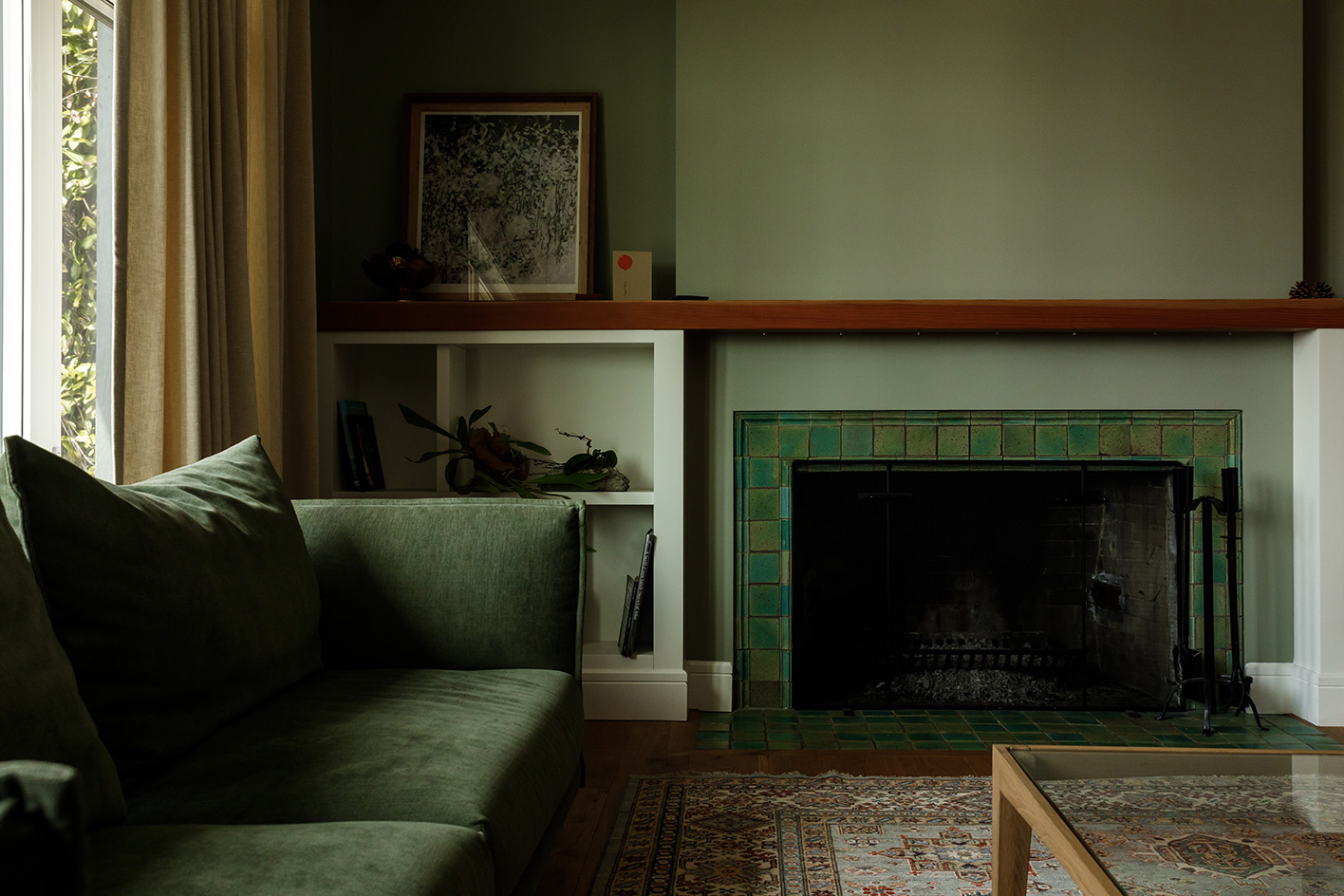
The family room opens onto the infinity pool, which further blurs boundaries. Walking through the house is to experience shape-shifting architectural choreographies and ever-changing framed views of the surrounding environment. Erickson always spoke about the importance of light in the house. He used water and polished chrome-plated steel columns to bring the sun into the ground plane; ‘they directly reflect the sky’, he said. And even on sombre winter days, when all the surfaces are dark, ‘that sky is light’.
Wallpaper* Newsletter
Receive our daily digest of inspiration, escapism and design stories from around the world direct to your inbox.
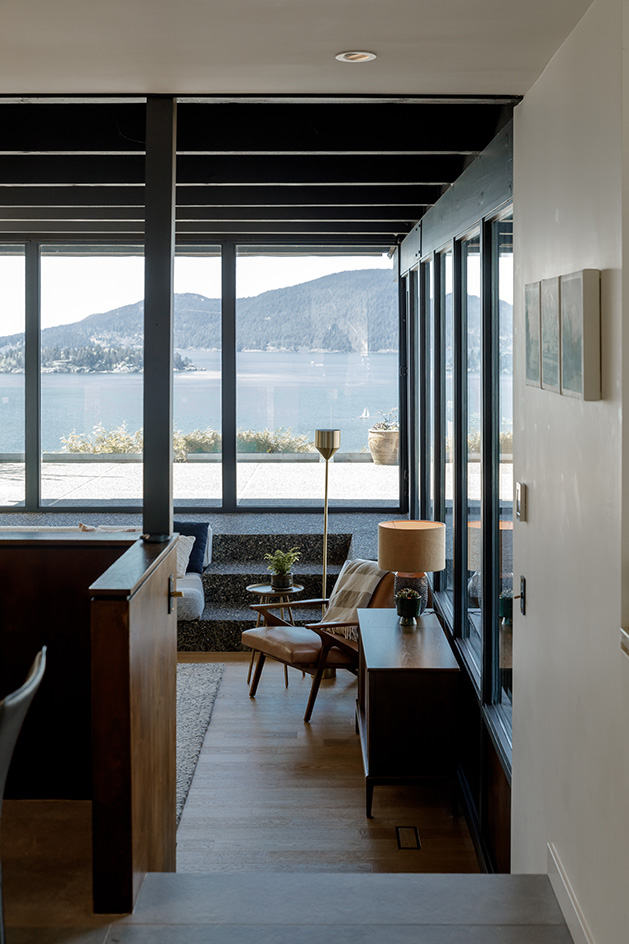
The Eppich I, designed by Arthur Erickson in 1972 as a concrete frame house and sensitively updated by BattersbyHowat Architects in 2015, is a more sober sibling with a suitable gravitas and elegance.
Both homes contain elements of Erickson’s work from his 1970’s heyday of public projects – including the recently reopened (after a 40-million-dollar seismic upgrade) 1976 Museum of Anthropology. In his centenary year, it’s a rare treat to witness the Ericksonian spirit embodied in these two fine residences.
-
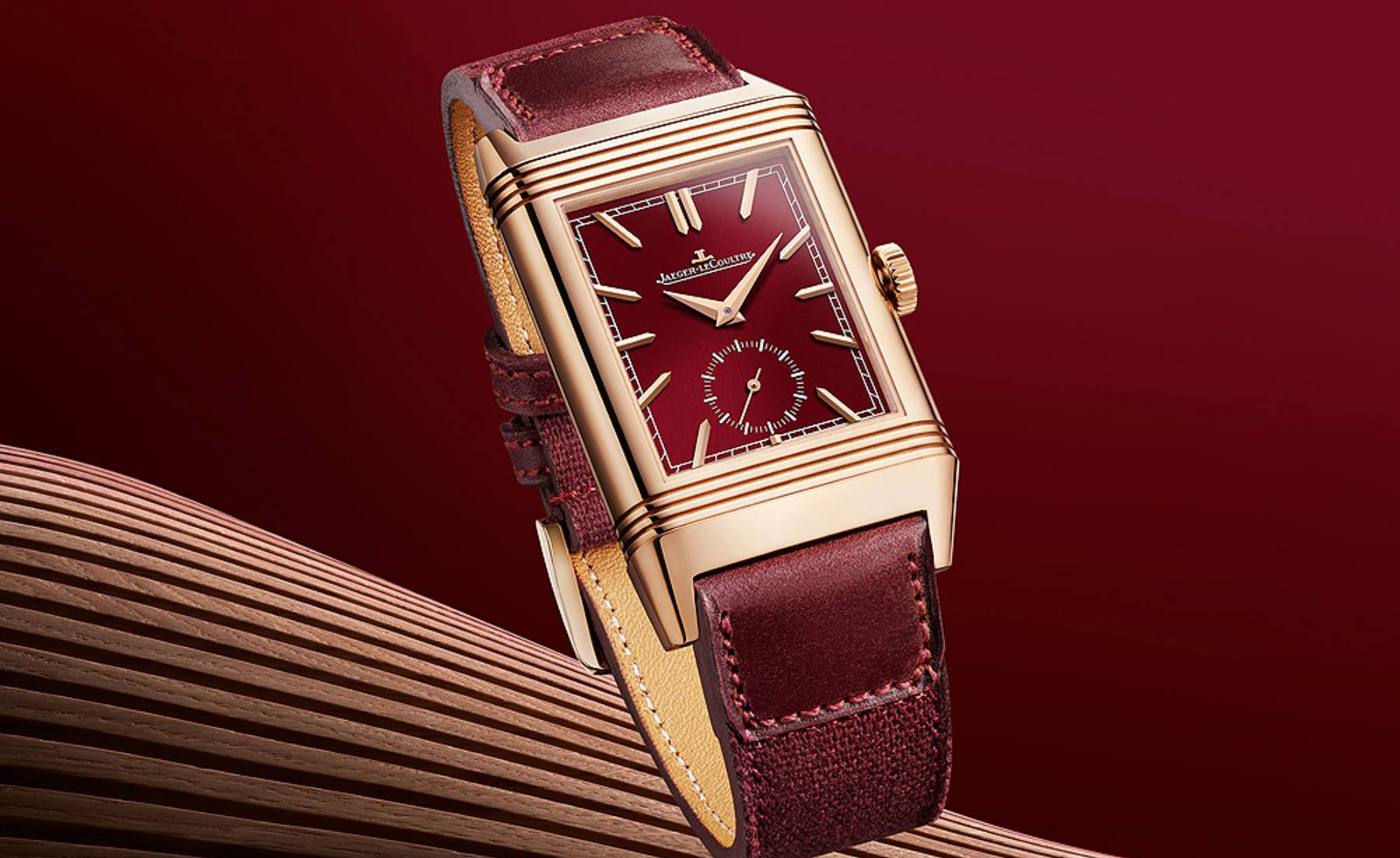 From dress to tool watches, discover chic red dials
From dress to tool watches, discover chic red dialsWatch brands from Cartier to Audemars Piguet are embracing a vibrant red dial. Here are the ones that have caught our eye.
-
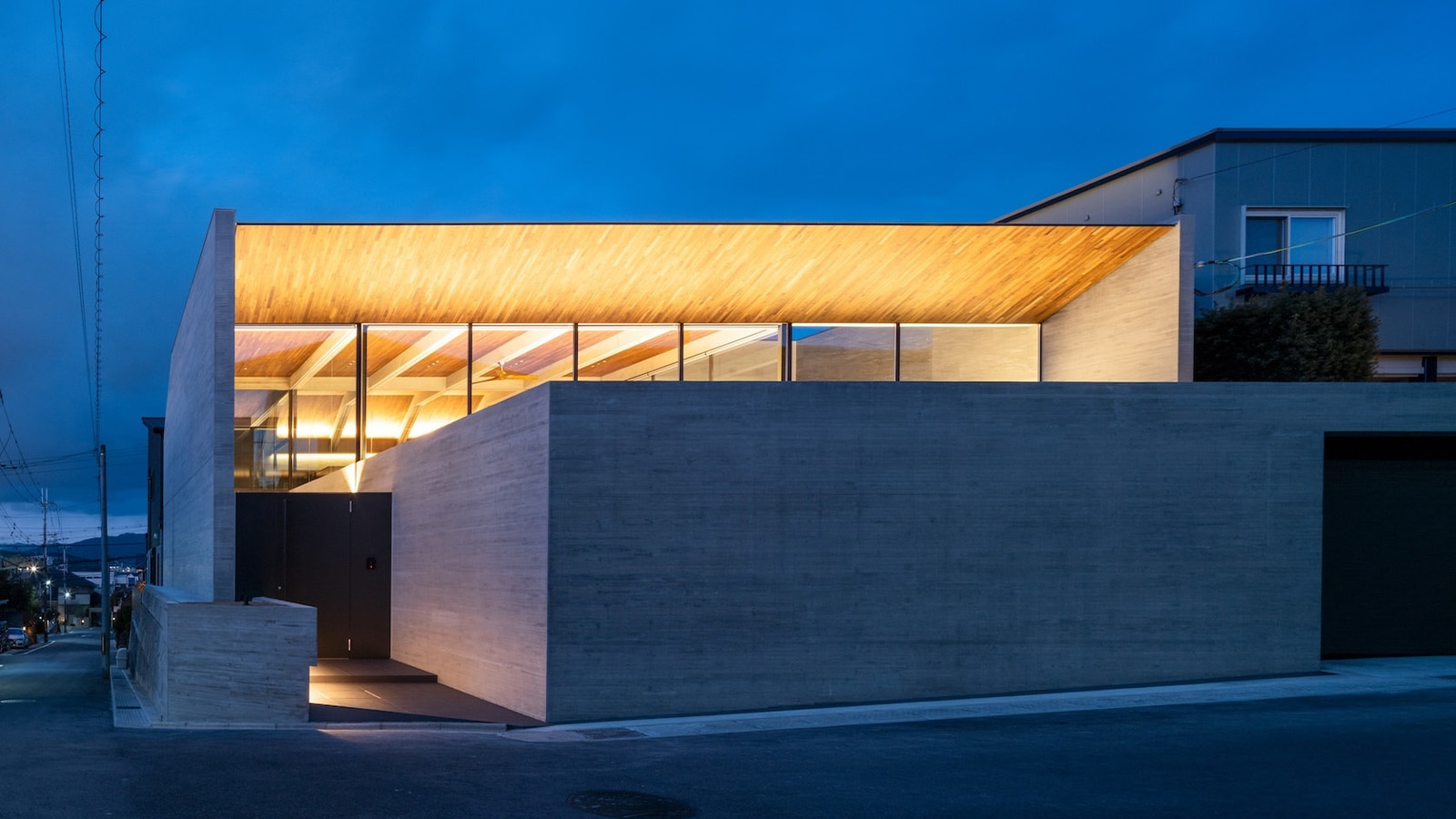 Behind a contemporary veil, this Kyoto house has tradition at its core
Behind a contemporary veil, this Kyoto house has tradition at its coreDesigned by Apollo Architects & Associates, a Kyoto house in Uji City is split into a series of courtyards, adding a sense of wellbeing to its residential environment
-
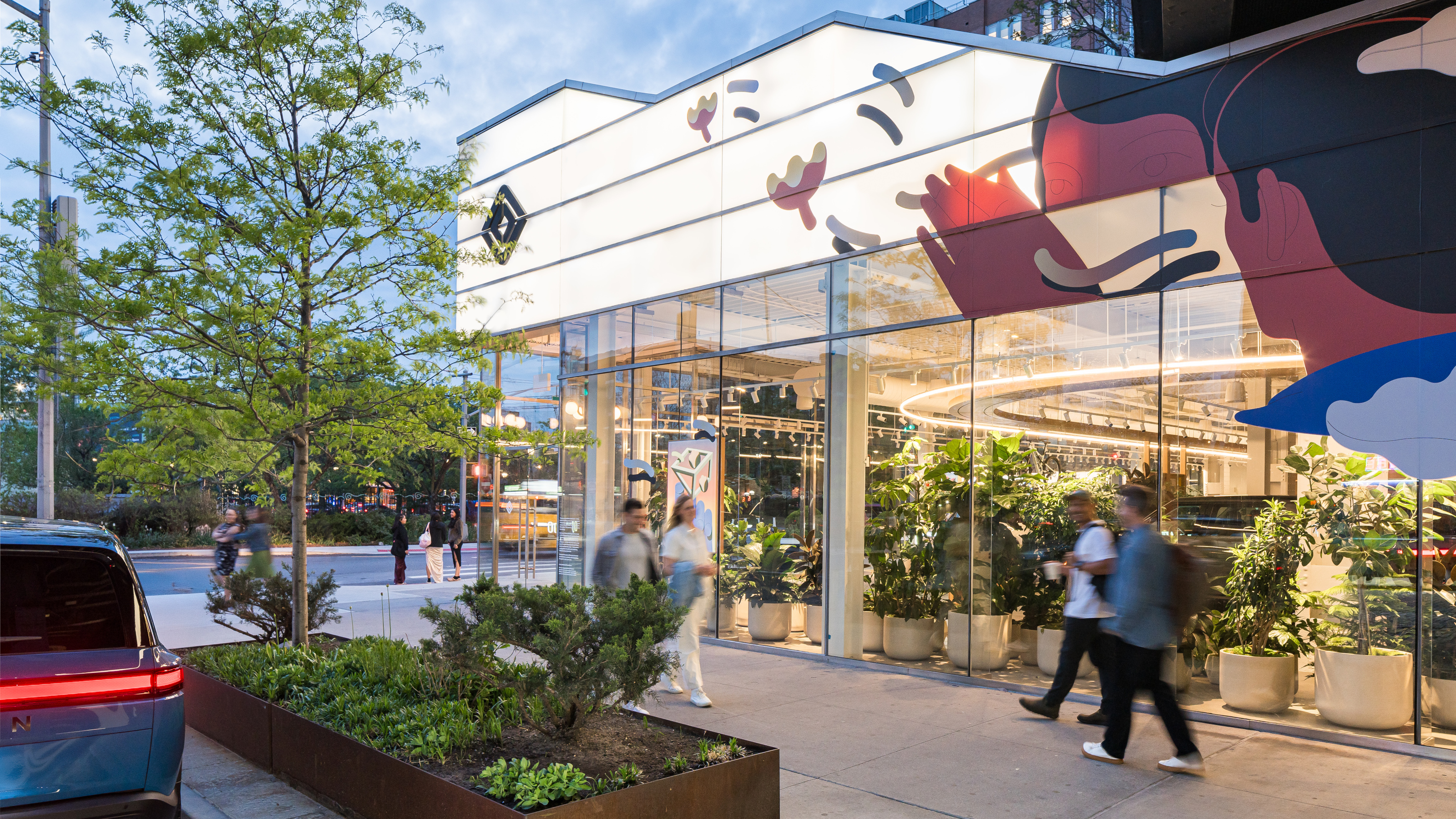 EV maker Rivian creates its first Concept Experience in New York’s Meatpacking District
EV maker Rivian creates its first Concept Experience in New York’s Meatpacking DistrictUnder the High Line, in the heart of one of New York’s most famous neighbourhoods is the Rivian Concept Experience, a showroom designed to surprise and delight both long-term aficionados and total newcomers to the brand
-
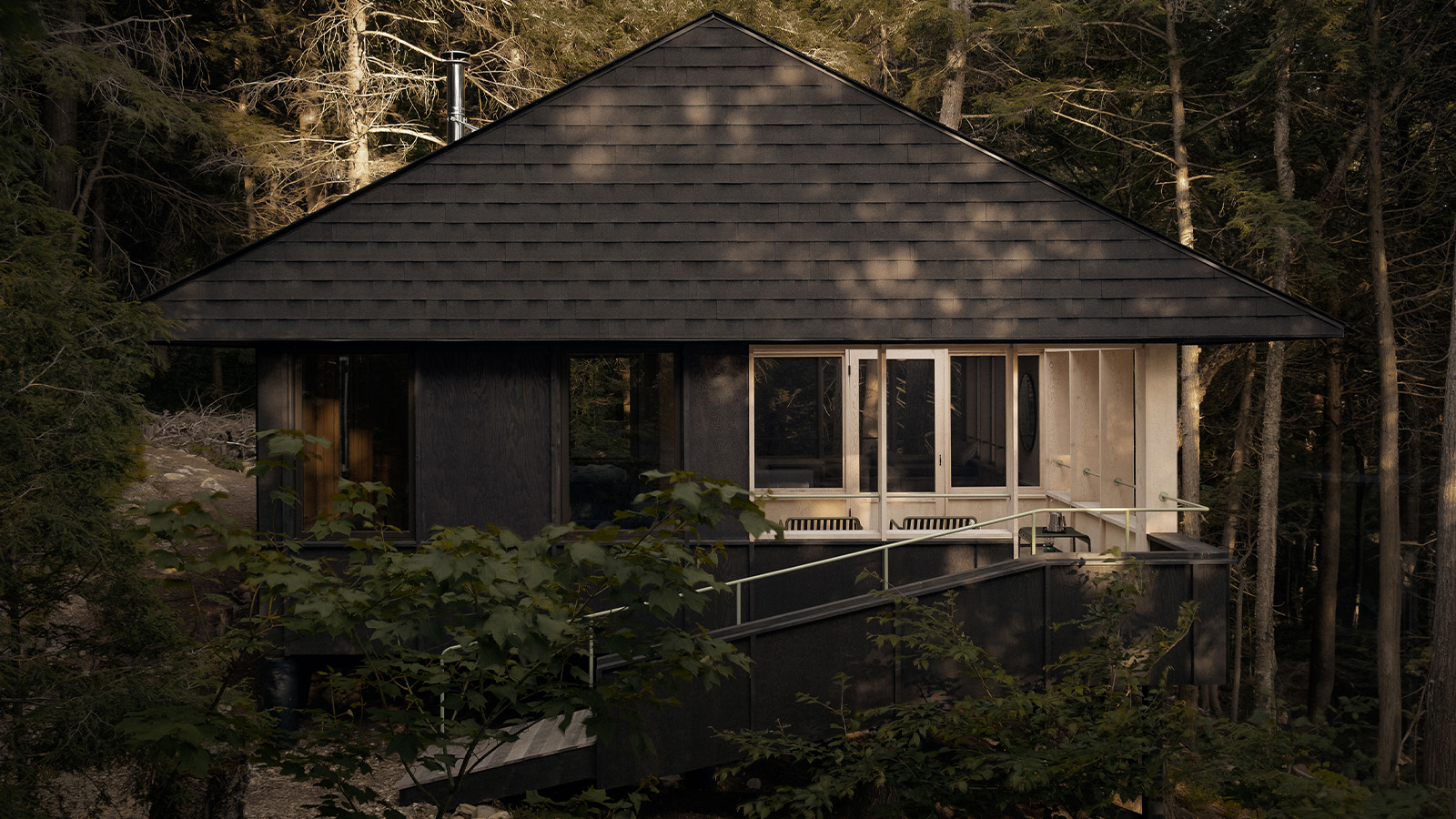 Smoke Lake Cabin is an off-grid hideaway only accessible by boat
Smoke Lake Cabin is an off-grid hideaway only accessible by boatThis Canadian cabin is a modular and de-mountable residence, designed by Anya Moryoussef Architect (AMA) and nestled within Algonquin Provincial Park in Ontario
-
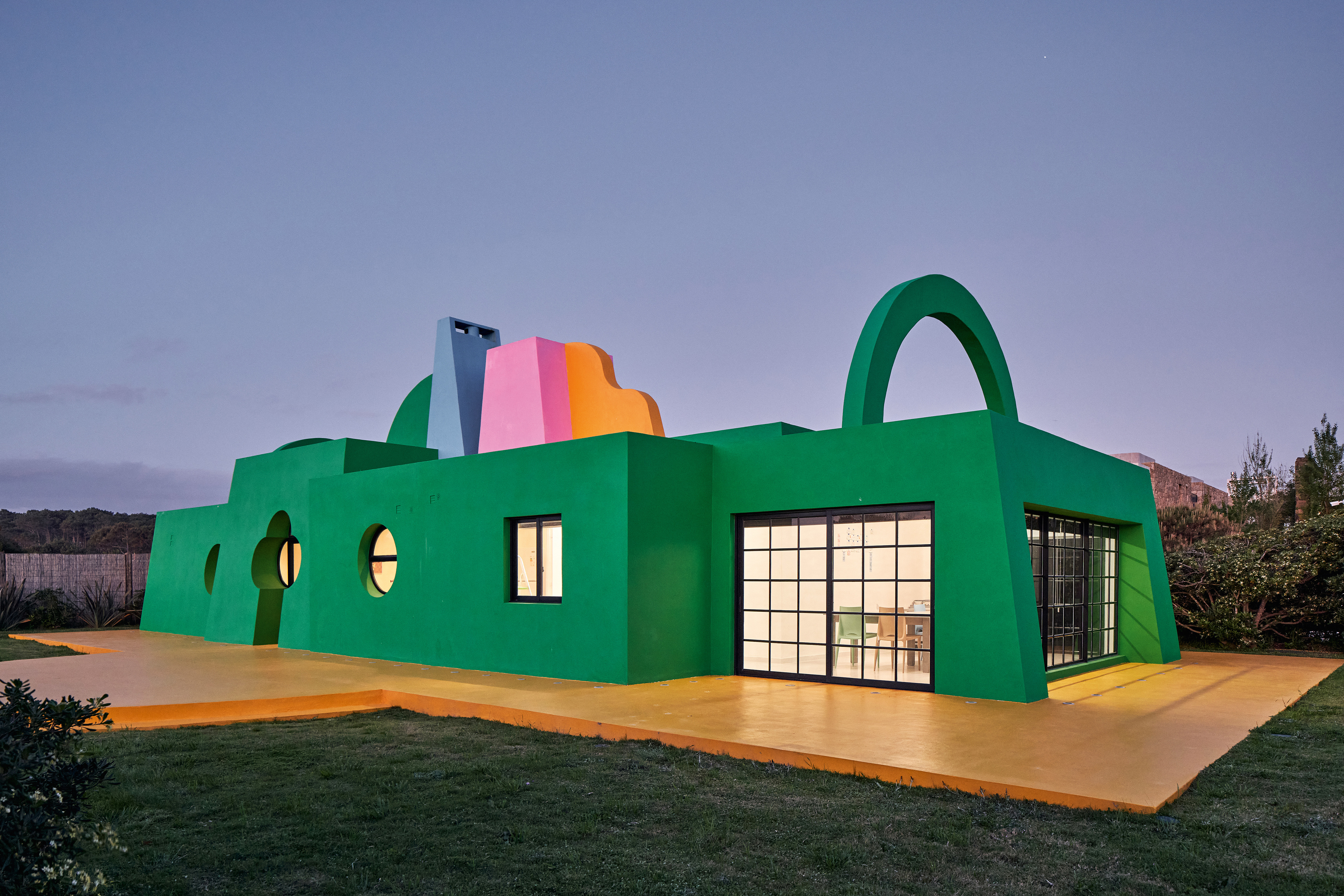 Ten contemporary homes that are pushing the boundaries of architecture
Ten contemporary homes that are pushing the boundaries of architectureA new book detailing 59 visually intriguing and technologically impressive contemporary houses shines a light on how architecture is evolving
-
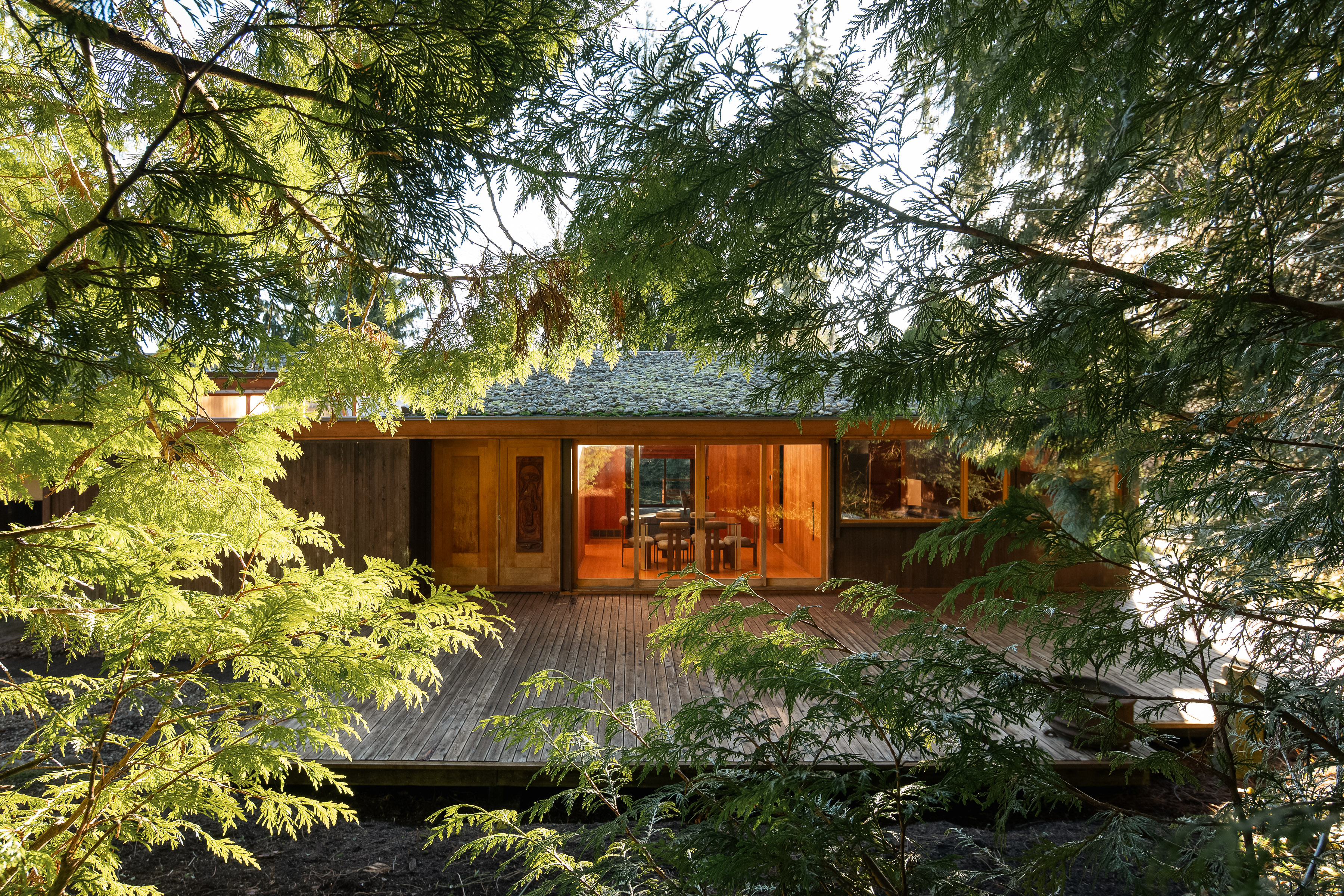 Explore the Perry Estate, a lesser-known Arthur Erickson project in Canada
Explore the Perry Estate, a lesser-known Arthur Erickson project in CanadaThe Perry estate – a residence and studio built for sculptor Frank Perry and often visited by his friend Bill Reid – is now on the market in North Vancouver
-
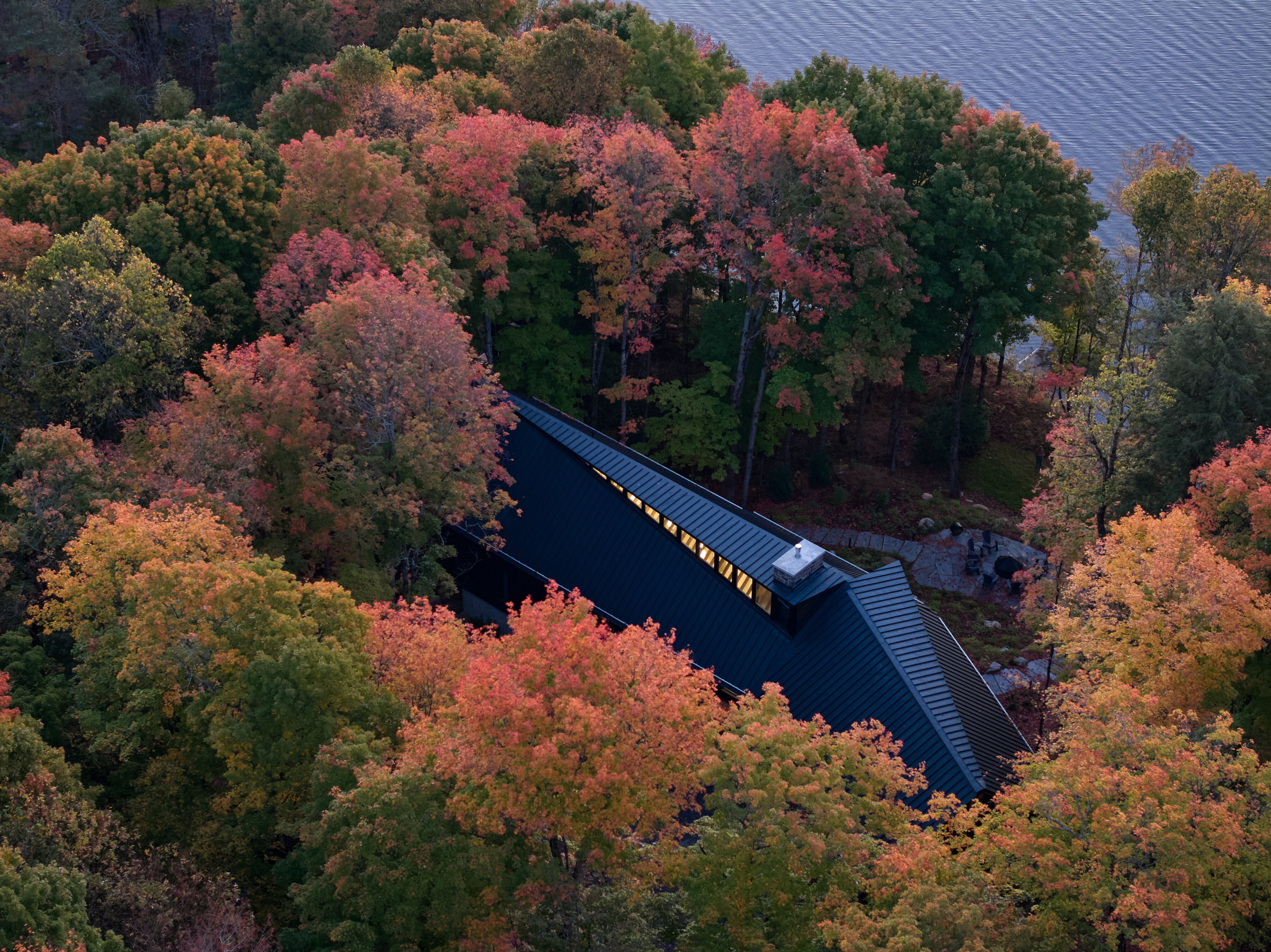 A new lakeshore cottage in Ontario is a spectacular retreat set beneath angled zinc roofs
A new lakeshore cottage in Ontario is a spectacular retreat set beneath angled zinc roofsFamily Cottage by Vokac Taylor mixes spatial gymnastics with respect for its rocky, forested waterside site
-
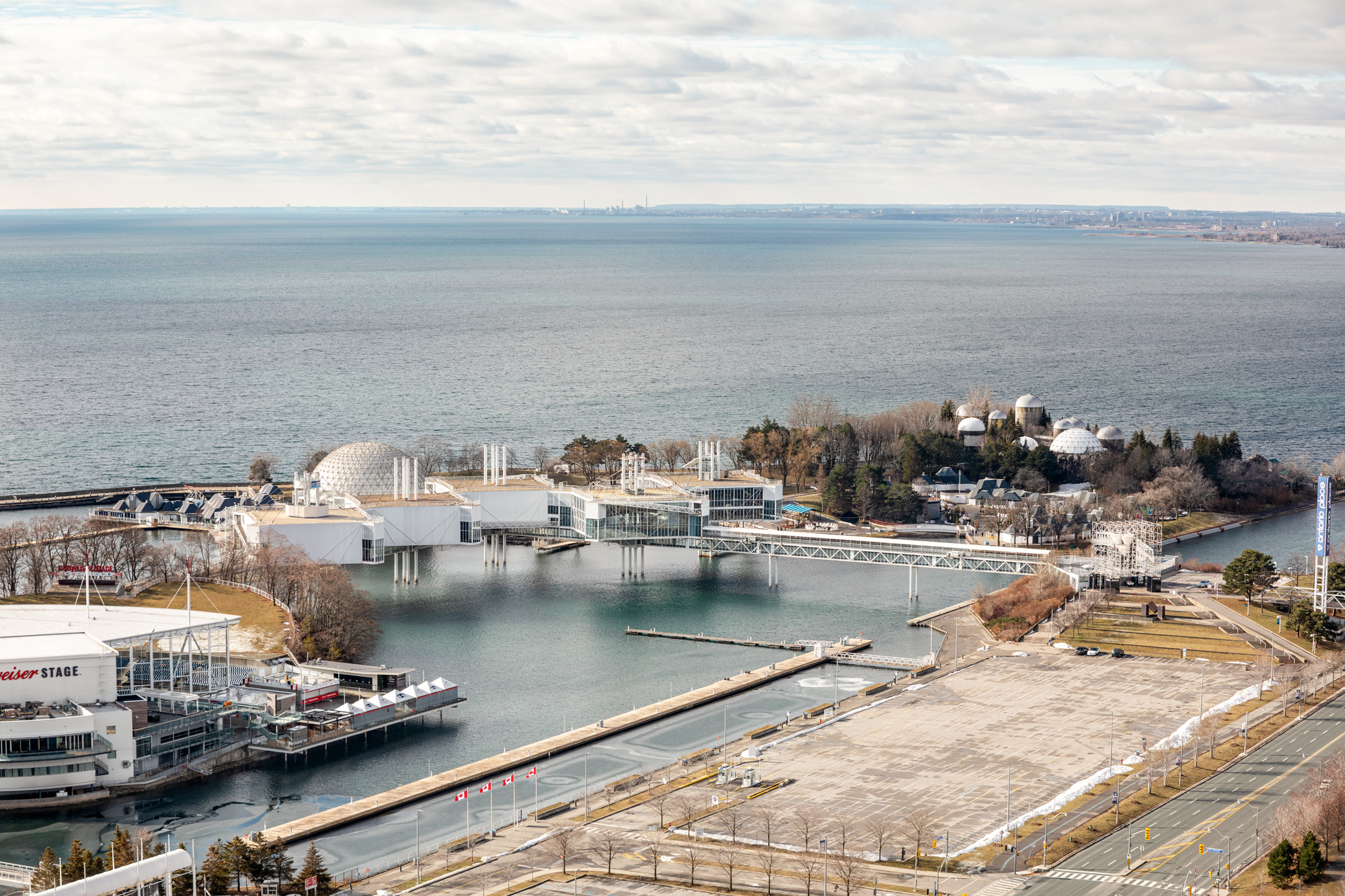 We zoom in on Ontario Place, Toronto’s lake-defying 1971 modernist showpiece
We zoom in on Ontario Place, Toronto’s lake-defying 1971 modernist showpieceWe look back at Ontario Place, Toronto’s striking 1971 showpiece and modernist marvel with an uncertain future
-
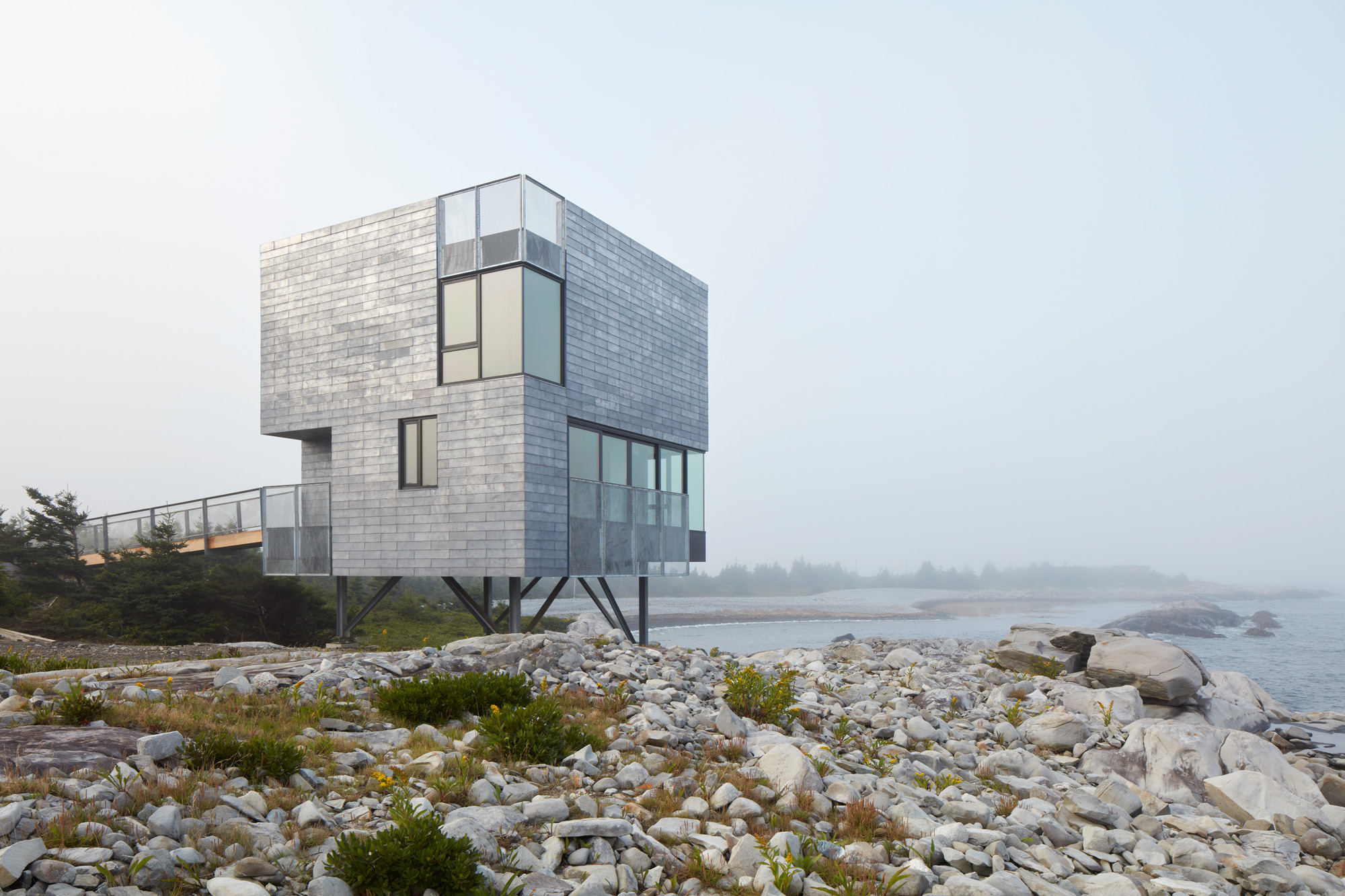 This Canadian guest house is ‘silent but with more to say’
This Canadian guest house is ‘silent but with more to say’El Aleph is a new Canadian guest house by MacKay-Lyons Sweatapple, designed for seclusion and connection with nature, and a Wallpaper* Design Awards 2025 winner
-
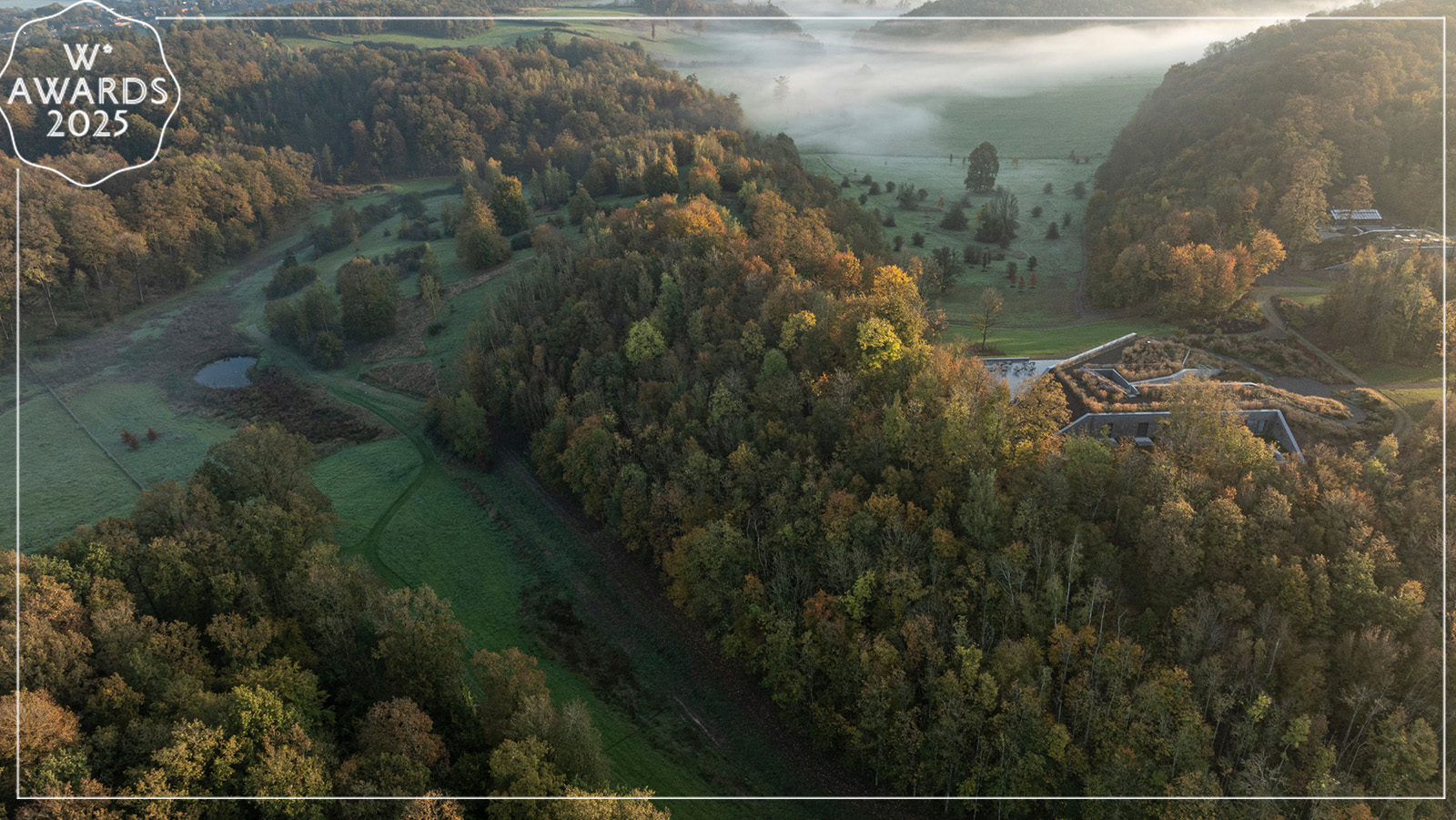 Wallpaper* Design Awards 2025: celebrating architectural projects that restore, rebalance and renew
Wallpaper* Design Awards 2025: celebrating architectural projects that restore, rebalance and renewAs we welcome 2025, the Wallpaper* Architecture Awards look back, and to the future, on how our attitudes change; and celebrate how nature, wellbeing and sustainability take centre stage
-
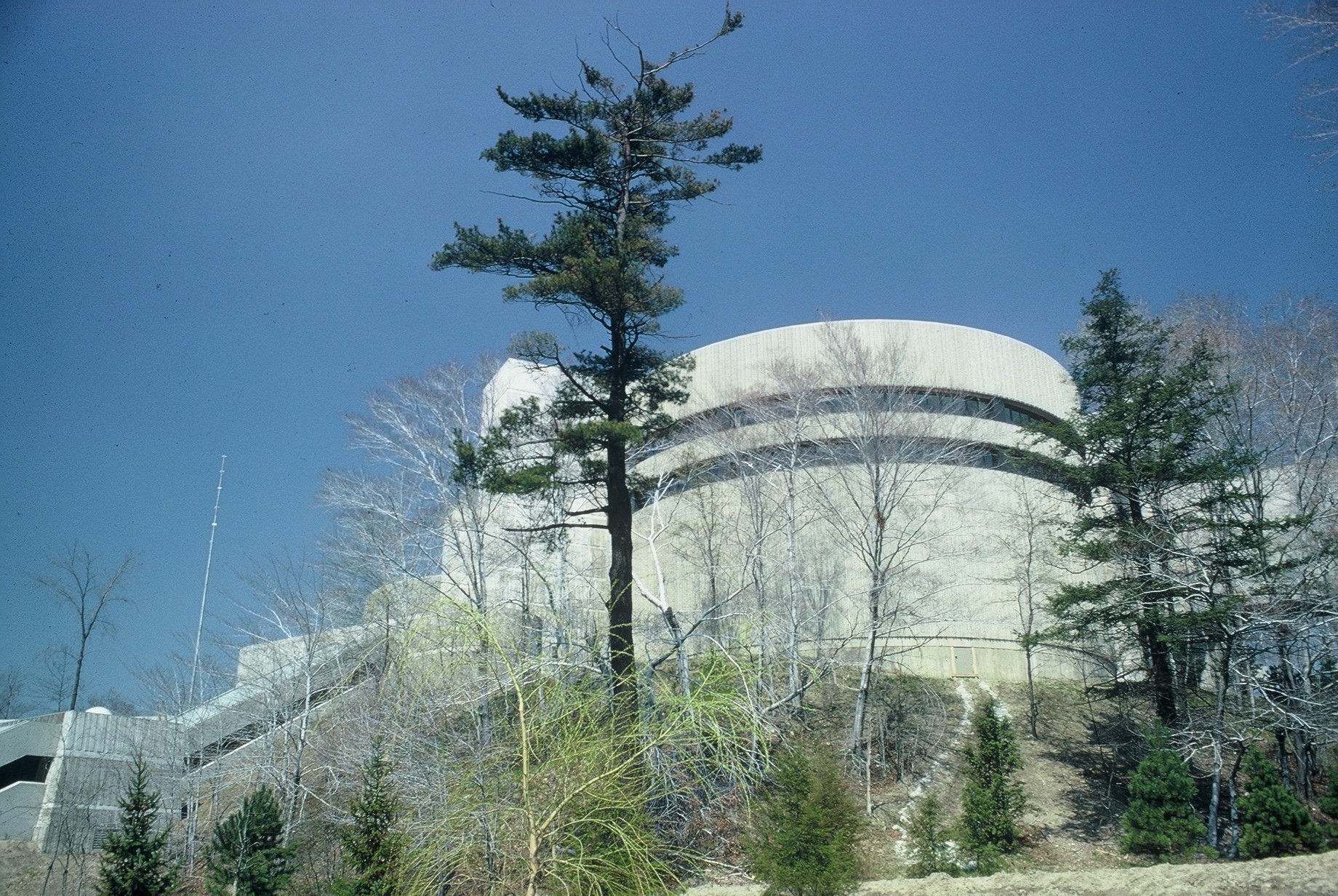 The case of the Ontario Science Centre: a 20th-century architecture classic facing an uncertain future
The case of the Ontario Science Centre: a 20th-century architecture classic facing an uncertain futureThe Ontario Science Centre by Raymond Moriyama is in danger; we look at the legacy and predicament of this 20th-century Toronto gem